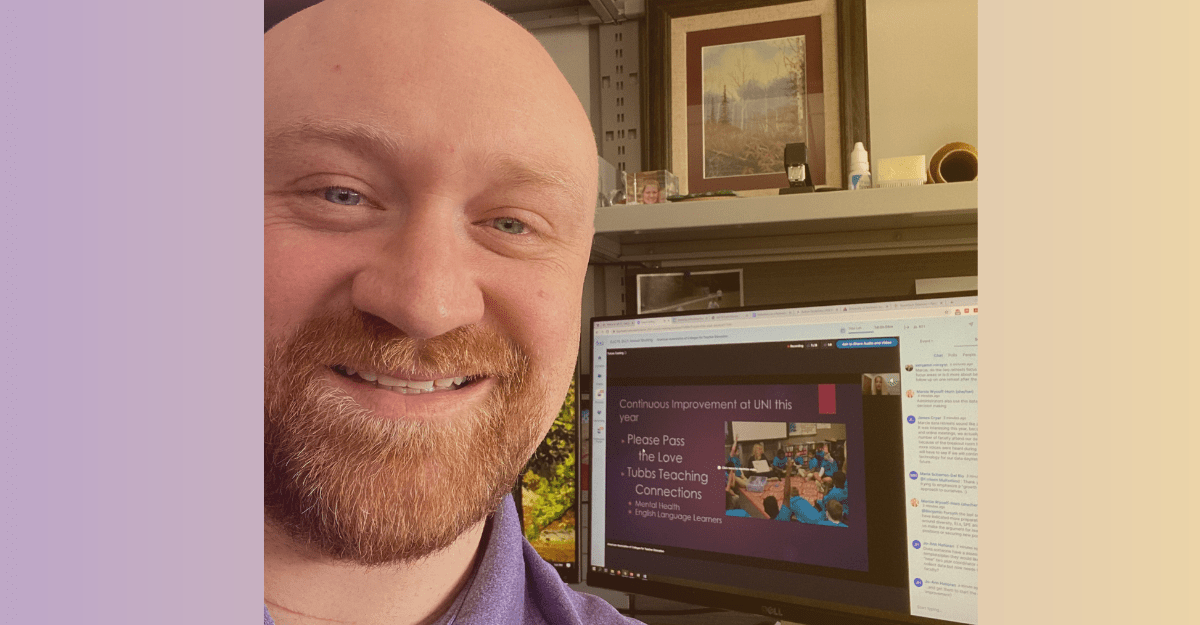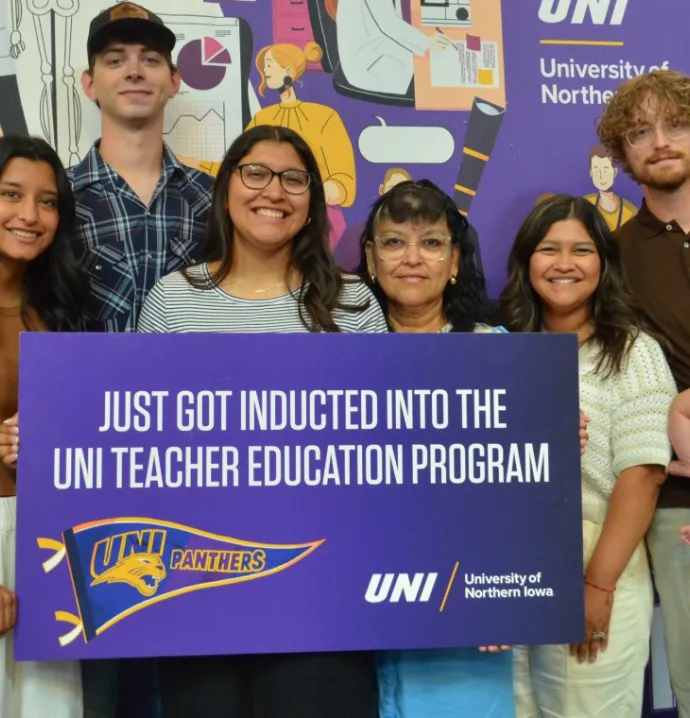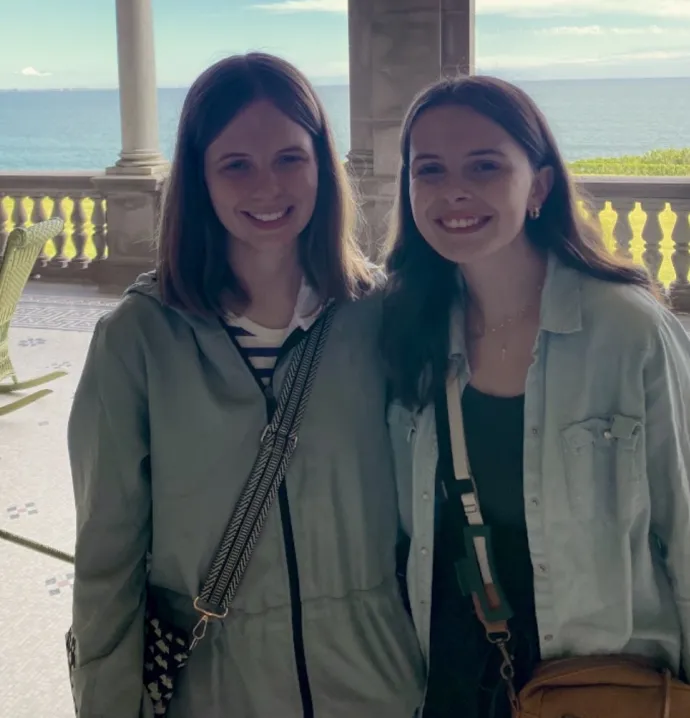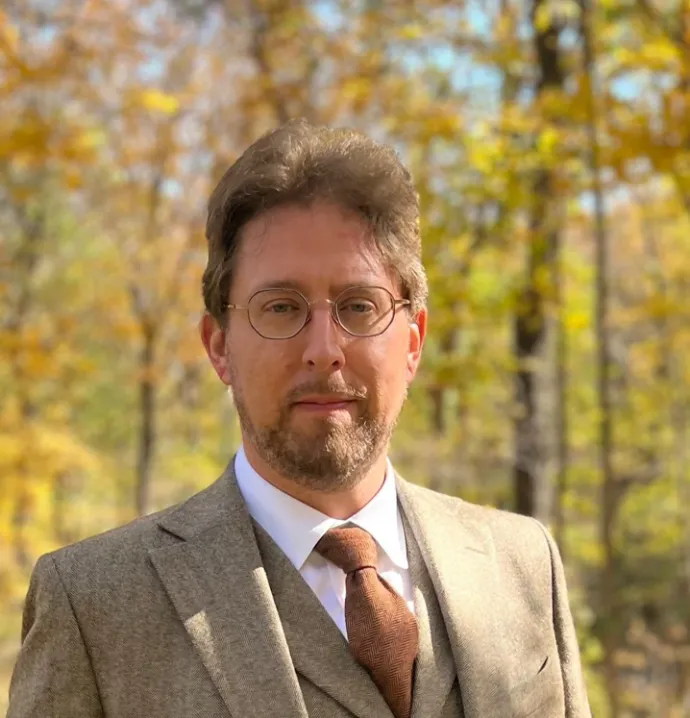Education professor’s research on interdisciplinarity impacts his teaching and inspires students
Education professor’s research on interdisciplinarity impacts his teaching and inspires students
Dr. Benjamin Forsyth’s background experiences are somewhat unconventional for a professor of education at a mid-size Iowa university: after growing up on the east coast, he played football at an Indiana college, had a two-year stint living in the Netherlands, finished his physics degree at Brigham-Young University in Idaho, spent two years teaching high school physics, and then studied educational psychology in the Midwest.
It was while teaching high school physics in the state of Washington that Forsyth became more curious about how students learn, so he enrolled in an educational psychology Ph.D. program at Michigan State University. After graduating, he began working at UNI, where he has worked for 13 years.
Forsyth teaches both undergraduate and doctoral students at UNI. The main undergraduate class he teaches is called “Learning and Motivation in Classroom Contexts,” and the primary doctoral class is called “Contexts of Contemporary Education.” He designed a course that became popular among the doctoral students called “Great Scholars and Education.”
His main research interest has always been interdisciplinarity. “The way I usually describe interdisciplinarity to others is that it is the transfer of learning. I'm really interested in what happens when you're sitting in your chemistry class, and it makes you think of something in your business class, for example. I want to understand what fosters that kind of connection-making. How do you avoid the misconceptions that come with those kinds of connections?” A few years ago, Forsyth’s conception of interdisciplinarity and the transfer of learning inspired an art education undergraduate student at UNI to create an art project: she superimposed educational psychologists that Forsyth taught her about onto an art piece that currently resides in the Schindler Education Center. Forsyth has a print hanging in his office.
Not only does Forsyth produce an abundance of scholarship on interdisciplinarity, but he contributes to projects that aid educators. One of the projects Forsyth is most proud of is helping create the Purple Pathway program, which is an accelerated, online program for paraprofessionals interested in becoming a licensed elementary educator in Iowa. “I've had an interest in figuring out how to help paraeducators have a viable pathway to become teachers because it's not very easy. Usually, if you're a paraeducator, you have a limited income; you are place bound; you're working full time, so you can't come and take in-person classes for years.” Both of his parents and one of his sisters have worked as paraeducators, so Forsyth is familiar with barriers that paraeducators face for getting a further education.
Last year, Forsyth became the Associate Dean for Educator Preparation, which oversees programs like Connecting Alumni to Students (CATS). He has also championed the massive curriculum transformation in educator preparation for teacher education.
Dr. Benjamin Forsyth





